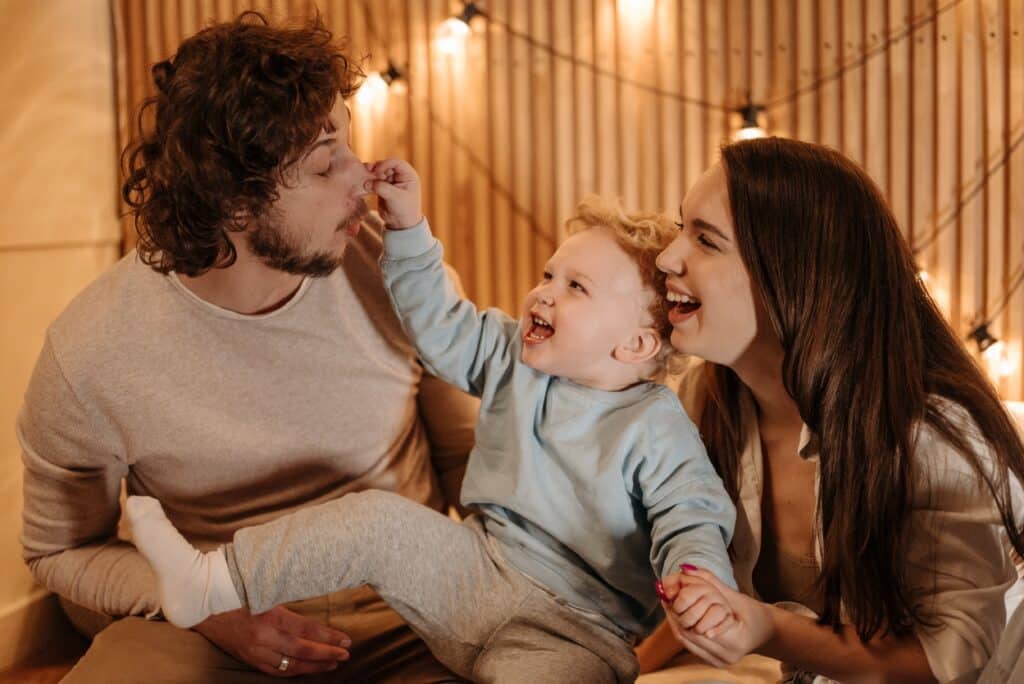
When Do Babies Laugh? It’s a question that many parents ask. Babies are a bundle of joy; their laughter is music to a parent’s ears. When Do Babies Laugh and what does it mean for their development? These are important questions for new parents to consider. Understanding When Do Babies Laugh can help parents monitor their child’s development and recognize potential delays. So, When Do Babies Laugh? Let’s explore this question further.
⇒ Read More: 10 Effective Tips for Parents with Difficult Feeding Babies
As parents, we all want to know why our babies laugh and when they start to laugh. Laughter is an important milestone in a baby’s development and understanding the reasons behind it can help us better understand our little ones.
We all know that laughter is contagious and that it can be a great way for parents to bond with their babies. But what causes babies to laugh? When do babies start laughing? In this article, we’ll explore the reasons behind your baby’s laughter and discuss when they usually start laughing. We’ll also look at some ways you can encourage your baby’s development by encouraging their laughter.
When Do Babies Laugh? According to research, babies typically begin to laugh between 3 and 4 months old. This is an important developmental milestone as it indicates the baby’s growing ability to understand and respond to social cues and their growing sense of humor.
It’s important to note that every baby is unique and may reach this milestone at a different time. Some babies may start laughing as early as 2 months old, while others may not start until closer to 6 months old. Additionally, some babies may laugh more frequently and easily than others.
There are several factors that can influence when a baby starts laughing. For example, babies exposed to many positive social interactions, such as playing and interacting with parents and caregivers, are more likely to start laughing earlier. Babies who have developmental delays or medical issues may also start laughing later.
Regardless of when a baby starts laughing, it’s important for parents and caregivers to encourage and foster their sense of humor. Laughing is not only a sign of a healthy developmental progression, but it’s also an important tool for building social connections and bonding with caregivers. So, When Do Babies Laugh? It varies, but parents should be patient and supportive, as their baby will reach this milestone in their own time.
Laughter is a sign of a baby’s developing social and emotional skills. When a baby laughs, it means they are able to recognize and respond to social cues, such as a parent’s smiling face or playful tone of voice. This is an important step in building strong social connections with others.
But what can parents do to encourage their baby’s laughter? Here are a few tips:
It’s important to remember that every baby is different and may have different preferences for what makes them laugh. So, don’t be discouraged if your baby doesn’t seem to be laughing as much as other babies. Just keep playing and interacting with them, and they will eventually start laughing.
As your baby grows, their laughter will become more frequent and spontaneous. It’s a beautiful thing to watch and a joy to be a part of.
As your baby grows and develops, their laughter will become more frequent and spontaneous. It’s a beautiful thing to watch and a joy to be a part of. As they reach six months, they will also start to laugh at things they see, such as other people or toys.
It’s important to remember that every baby is unique and may reach different milestones at different times. However, it’s always best to consult with your pediatrician if you’re concerned about your baby’s development.
In conclusion, babies begin to laugh between 3 and 4 months old, and it’s a sign of their developing social and emotional skills. Parents can encourage their baby’s laughter by playing games, using silly voices and faces, reading and listening to music, and giving plenty of cuddles and physical affection. As they grow, their laughter will become more frequent and spontaneous, and it’s beautiful to watch and be a part of.

Jasbir Kapoor is an author, blogger, web and graphic designer, SEO expert, logo designer, and entrepreneur with an MBA and a background in English Literature. He is passionate about creating engaging content and beautiful, user-friendly websites, and is always seeking new opportunities to learn and grow.
Leave a comment